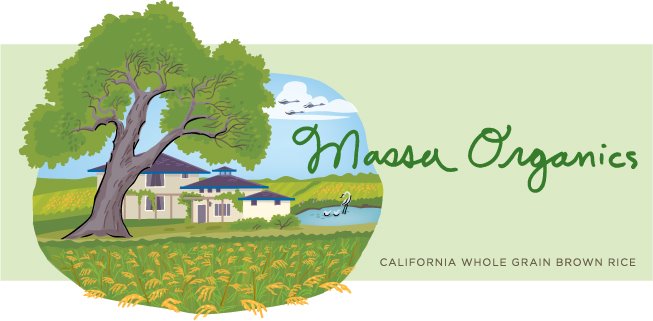Back in October, Raquel and I had the opportunity to attend Terra Madre, the biennial international meeting of Slow Food International (SFI). The Terra Madre Network brings together food communities, cooks, academics and youth delegates for four days to work towards increasing small-scale, traditional, and sustainable food production. Below is a report we wrote for CUESA, the organization that selected us to attend Terra Madre.
----------------------------------
Opportunity for cultural exchange was everywhere at this year’s Terra Madre, which hosted 7000 people from 153 countries. We spoke with rice farmers from Madagascar, India and Thailand, learned about the wild almond groves in Uzbekistan, and ate sausage made near the tiny Portuguese village where Greg's grandfather was born.
We did bring back a few nuts-and-bolts ideas that will be directly applicable to our farm. We learned about some interesting grains that we could experiment with, such as einkorn, one of the earliest cultivated forms of wheat with a more easily digestible form of gluten than modern wheat, and fonio, a small-seeded millet from Africa.
From a philosophical perspective, there was even more to take home — some of it new, and some a confirmation of what we already believe. For example, one of our farm goals is to grow and market our rice without harming small farmers in other parts of the world. This means that we won’t be exporting our rice cheaply, but it also means that we won’t grow Basmati or Jasmine rice, because we wish to avoid stealing the genetic heritage of generations of small Thai or Indian farmers who developed those varieties. Growing those varieties here in California would impact the ability of Asian farmers to export their rice to the more lucrative US market. Our discussions with some farmers from Madagascar who grow pink rice confirmed this for us. Conversely, there are other grains — such as Red Fife wheat from Canada — that are so close to extinction it would in fact be beneficial to grow them and increase the seed supply and demand.
In the minds of some Americans, Slow Food seems to have an elitist membership and message. However, we found the international organization to be remarkably populist. Their mission of “good, clean and fair food for all” resonates with us, though the implementation of that ideal is difficult at best. There is plenty of “good” food at farmers’ markets everywhere. But “clean” food is becoming scarce in today’s globalized food system. Even on a local scale there are problems: we learned this week that a fungicide used on non-organic almonds and grapes in California is directly linked to a higher incidence of Parkinson’s disease. “Fair” food may be the most difficult to achieve, as making good, clean food available at a fair price to everyone in the food chain (including farmers) is a real challenge.
The trip to Terra Madre was a whirlwind — and much too short. We left our five children at home, split between two babysitters, so we had little extra time to spend on vacation! But we feel very privileged to have been part of this “gathering of the peasants of the world.”
We are most grateful to Slow Food San Francisco and CUESA for making our trip possible.
Greg Massa and Raquel Krach
Massa Organics
Monday, February 16, 2009
Subscribe to:
Post Comments (Atom)

2 comments:
Thanks for your blog! You say you "learned about the wild almond groves in Uzbekistan..." Do you have a reference or possible contact person/entity for those specifically? Would LOVE to know.
Thank You!
Here's a link to the Slow Food Presidium on the Uzbek almonds, including contact information:
http://www.slowfoodfoundation.org/eng/presidi/dettaglio.lasso?cod=383
Thanks for commenting!
Post a Comment